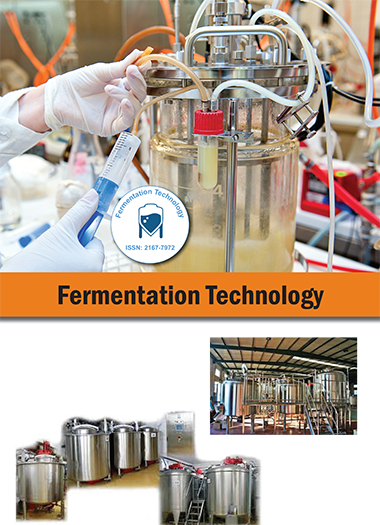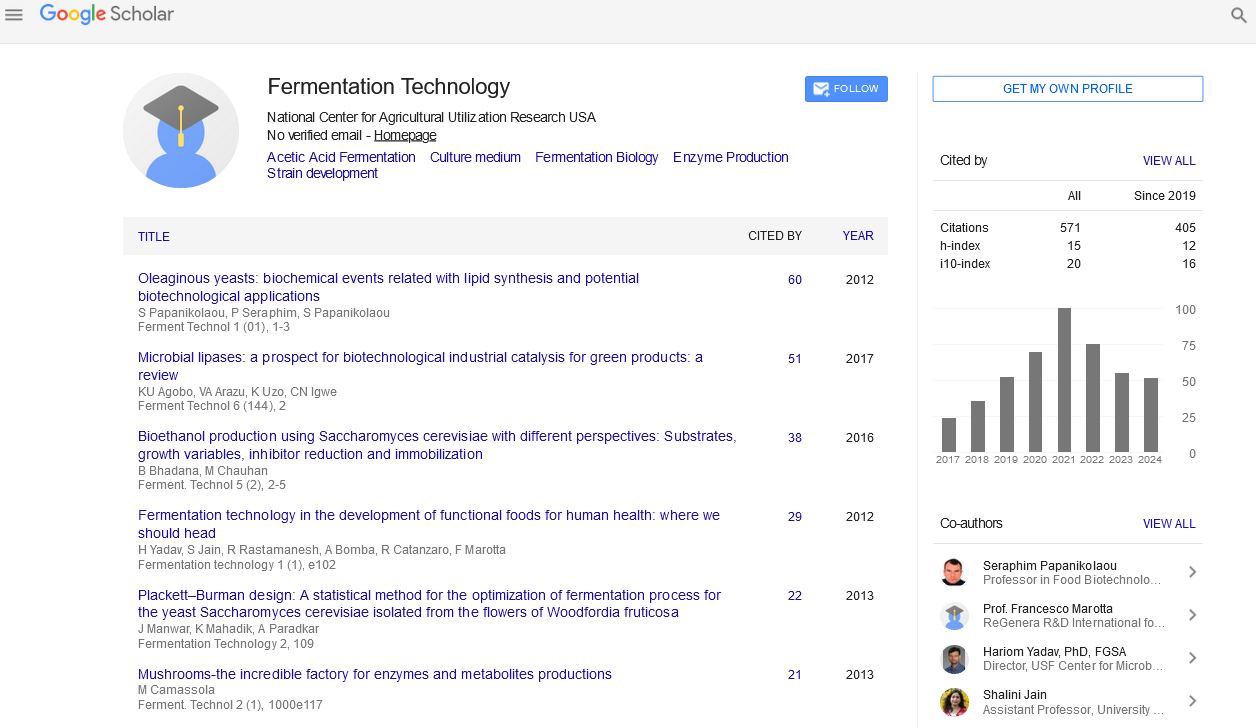Indexed In
- Open J Gate
- Genamics JournalSeek
- Access to Global Online Research in Agriculture (AGORA)
- RefSeek
- Hamdard University
- EBSCO A-Z
- OCLC- WorldCat
- Publons
Useful Links
Share This Page
Journal Flyer

Open Access Journals
- Agri and Aquaculture
- Biochemistry
- Bioinformatics & Systems Biology
- Business & Management
- Chemistry
- Clinical Sciences
- Engineering
- Food & Nutrition
- General Science
- Genetics & Molecular Biology
- Immunology & Microbiology
- Medical Sciences
- Neuroscience & Psychology
- Nursing & Health Care
- Pharmaceutical Sciences
Sugar beet hydrolisates as a carbon source for LAB
World Congress on Beneficial Microbes: Food, Pharma, Aqua & Beverages Industry
August 25-27, 2015 Valencia, Spain
Marta Dudkiewicz, Joanna Berlowska, Dorota Kregiel and Michal Binczarski
Lodz University of Technology, Poland
Posters-Accepted Abstracts: Ferment Technol
Abstract:
The cost of raw materials is one of key factors that determine the economic viability of fermentation processes. Pure glucose, sucrose, starch, etc. are expensive feedstocks for lactic acid production. The choice of substrate is usually a question of geographic availability. An abundant but underexploited residue in Poland is sugar beet pulp, which remains after sucrose extraction. Its qualities include a very low lignin level (around 2% of dry matter) and high carbohydrate content (75% w/w of dry matter), including pectin (24-32%), cellulose (22-30%) and hemicellulose (22-30%). Its principal components can be converted into hexose and pentose feedstocks for use in various fermentation processes. Three collection strains (PCM, Wroclaw, Poland) were used in the study: Lactococcus lactis 2379, Lactobacillus acidophilus 2510 and Lactobacillus delbrueckii 490, as well as the environmental isolate (from sugar beet pulp) Lactobacillus plantarum II. Aerobic cultivation of lactic acid bacteria was conducted at 37�����°C for 48 hours. The growth of bacteria was measured via spectrophotometric (optical density measurements) and plate count methods. Lactic acid production, the monosaccharide profile of sugar beet hydrolysates and sugar utilization profiles were measured by spectrophotometry using Assay Kits (Megazyme). All of the strains tested reached the stationary growth phase after around 30 hours of cultivation. However, the sugar utilization profiles and acidification dynamics were found to be strain-dependent. In our study, complete consumption of glucose and fructose and partial utilization of galactose (Lactobacillus strains) and arabinose (Lb. delbrueckii and plantarum) was observed with all four strains.
Biography :
Marta Dudkiewicz has graduated from Lodz University of Technology (LUT) with BSc in Technical Microbiology and MSc in Fermentation Technology. The subject of her MSc thesis, which she completed in 2014 was “The utilization of sugar beet pulp hydrolysate for lactic acid fermentation”. Currently, she is employed by Institute of Fermentation Technology and Microbiology (LUT), working as a scientist and researcher and doing research for Applied Research Programme – Project PBS1/ B8/3/2012. She is a co-author of several articles which are going to be published soon.
Email: marta.dudkiewicz@p.lodz.pl

